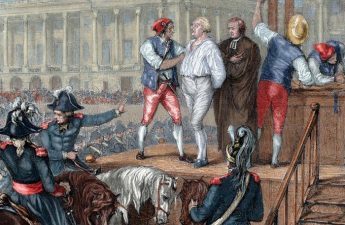There is no greater polymath than Leonardo da Vinci. He created masterful paintings, intricate sculptures, war machines of extreme complexity under the direction of his rulers, and designed several tools that were far ahead of his time like the conical parachute. He would even emerge in anatomical research of the human organs by using dead bodies from the graveyard. If that reminds you of how you dropped out of the gum because it was too far away I can understand.
Leonardo was one of the greatest multi-talented people that ever lived, and his genius would manifest crystal-clear on anything he would get his hands on. Something that opposes the modern principle, that people should focus on one thing if they want to have more chances of success. How could you stand out at all by smearing a little bit of everything when everybody else in the world could do the same thing any time they wanted to?
Yet there are so many examples of successful people that not only they did well in multiple disciplines, but they even used them to gain a deeper understanding of their primary subjects. Nikola Tesla, Benjamin Franklin, Aristotle, are all examples of polymaths that would use ideas from unrelated sectors to apply them in their work.
So could it be that the ‘follow just one thing’ motto is just a misunderstanding that propagated mostly out of false impressions rather than reality and that a multi-disciplinarian can even reach greater heights by the knowledge he gets from each separate sector? Before betting our money on anything, we should step back for a moment and have a good look at the benefits of each approach.
How To Properly Keep A Blog
When I initially started a blog, I set out the rule of writing at least two articles every week. I put all emphasis on blogging and how to structure my writing the best way possible for the readers and I was looking for ways to understand what constitutes good writing and whatnot. If you put the effort to go through the myriads of existing blogs, you will come down to a few things that work the best for you and can resonate with your particular personality. Do you enjoy personal anecdotes, do you prefer technical or scientific researches, what is the right amount of humor in it, and so on.
But what I didn’t realize at that point is that the worst thing a blogger could do for his development was to over-focus on producing standard blog-posts while eradicating everything else from his toolset.
Somehow I ended up writing a little short story. It was the first I had ever tried, and it was radically painful to create, trying to make sense of what this whole genre is all about and what are its intricacies. Although not proud of the outcome I kept going at it in writing various 2.000–3.000 word pieces of narration, even having the slightest sense of cohesion. It was like a separate hobby to keep my hands busy while I was devoting myself to the more serious aspect of writing through blogging and essays.
But then I saw both of these two disciplines mesh up with each other with time, loosening up the borders between them. Strict articles could easily contain scientific facts as well as narrating language of imaginary scenarios and characters that I would use to make my point. And characters in stories would make speeches and express articulate opinions as if they had researched their subject thoroughly, in a way a good blogger would have. Things became apparent to me that these two branches weren’t as independent as I previously thought, but would infiltrate in each other territory and help the overall improvement.
And then I even got my hands into poetry and saw how strongly it helped me create stronger images for the viewers and pass emotional messages that would be impossible to do with any other language at hand. Who would have thought that all these seemingly separate areas would be so interconnected with each other and could influence things at such a deep level?
Steve Jobs And Caligraphy
At some point through his student years, Steve Jobs studied Caligraphy under a Trappist monk Palladino at Reed College.
“Reed College at that time offered perhaps the best calligraphy instruction in the country,” Steve Jobs
This seemingly irrelevant class that was perceived by most as unimportant and trivial, influenced the way Apple computers would emerge and set out the basis on the various design principles they would follow later on.
“Throughout the campus every poster, every label on every drawer, was beautifully hand calligraphed…I learned about serif and sans serif typefaces, about varying the amount of space between different letter combinations, about what makes great typography great. It was beautiful, historical, artistically subtle in a way that science can’t capture.” — Steve Jobs
As he would later on, describe in his famous speech at Standford, nothing of what you do is independent. Knowledge compounds and builds on top of the preexisting lessons you have accumulated already, and every little piece could make a huge difference. And as is so evident in the world, most of the time it is these little extra pieces of knowledge that make the difference and they always come from disciplines that are totally different than the one you are working on.
Narrowing It Down To One Thing Is Obsession
Giving your full focus on one thing alone is an obsessive and compulsive behavior, and can pinpoint to deeper issues that drive the individual towards specific goals. In most of those cases, it feels as if someone is trying to cover for the lack of something in his emotional world, and he strives to compensate for it through his craft.
My art originates from hallucinations only I can see. I translate the hallucinations and obsessional images that plague me into sculptures and paintings. — Yayoi Kusama
Love with your craft is not to be confused with compulsive behavior that drives an individual besides his own will and takes control of his action as if its an evil spirit. Even though there can be positive outcomes from this immersion as for example from the various obsessed artists that dive into their work passionately sculpting their masterpieces, it can be highly detrimental for the individual and his mental health.
In the same way, juggling various disciplines does not mean dipping your toe in each of them doing only superficial work that barely meets the goals. You still need to take independent, smart targets that allow you to concentrate your powers and allocate the proper amount of energy to bring forth something good. It is a very different mindset than the idea many have to just smear out of every part just to get what you need at that point in time.
Creativity vs Obsession
There is a well-defined area that separates obsession from creativity and it can be very elusive to spot. It is found in the fact that obsessions grow on their own and drive an individual into action that he didn’t decide with his own logical mind. It’s the impulsive behavior that for example people like Hitler display, that would embark on anything to apply their ideas. Positive creativity comes mostly from withing, it propagates out of an individual in a controlled fashion and it is him that chooses to embark on his occupation out of love and passion.
In both cases, it’s the origins of the attitude that makes the difference and draw the boundaries of one side from the other. Creativity will draw inspiration from the environment, mash it up with the rest, and put forward a new interpretation of the world through this beautiful feedback loop. Obsession is mostly narrowed down to an idea, that somehow an individual will try to apply independently of what exists in the environment. It’s like he has closed down the communication of the receiving part and he is only interested in enforcing his own ideas to others.
How Our Culture Favors Expertise
So where is the idea of focusing on one thing only really comes from? So many gurus and self-help experts preach on concentrating your powers on single areas to advance, that this whole attitude has become the norm.
“We are living in a society that promotes expertness”
Our culture has emerged into a set of rules that appreciate expertness more than a vast knowledge of things. People that have huge experience in fonts and their particular applications in various formats will be sought out more highly than someone who has nailed down the general principles of design. Businesses favor minimizing the range of applications for every employee in order to be easily replaceable and manageable. But that is mostly an arbitrary rule that is set out to help the individuals that are in charge of someone. They want pluggable pieces in the whole machine that they can screw and unscrew as pleased, while at the same time, they try to eradicate any dependence on multidisciplinary people, that expands their tentacles like an octopus and are much harder to find.
Being Busy Versus Immersing In Something
The new norms suggest that we use busyness to project value to the word. We need to constantly be doing something, snapping photos in interesting places, and posting them for everyone to see in order to be appreciated. We pass out through everything superficially following this model of functioning and reject the chance to immerse fully in something and bring forth the wonderful results we are so capable of.
As an opposite force to this degenerative power, people will assume that we need to focus on one thing only. They will correlate the idea that having many things on your plate is the same with the social media reality where everything happens for the impressions and will give you examples of people that did good or bad depending on how much they followed their rules.
But this is a solution to a problem that has different roots and is only partially solved by this attitude. It also may restrict an individual to fewer stimulates and minimize the exposure that is needed to get a bigger view of things.
The ‘focus on one thing’ rule is really just declaring to us to unsubscribe from the notification culture and instead dive into the world more fully by finding your purpose with something you love. And thinking about it, there is nothing stopping you from finding your purpose while using everything at your disposal from the world around you. We just need to get smarter on what we allow to pass the borders of our attention.
0



